- Home
- Peter Matthiessen
On the River Styx: And Other Stories
On the River Styx: And Other Stories Read online
ALSO BY
PETER MATTHIESSEN
Fiction
Race Rock
Partisans
Raditzer
At Play in the Fields of the Lord
Far Tortuga
Nonfiction
The Wind Birds
Under the Mountain Wall
The Cloud Forest
Wildlife in America
Sal Si Puedes
Blue Meridian
The Tree Where Man Was Born
The Snow Leopard
Sand Rivers
In the Spirit of Crazy Horse
Indian Country
Nine-Headed Dragon River
Men’s Lives
FIRST VINTAGE BOOKS EDITION, JUNE 1990
Copyright 1951, 1953,
© 1957, 1958, 1963, 1978, 1985, 1988, 1989 by
Peter Matthiessen
All rights reserved under International
and Pan-American Copyright Conventions.
Published in the United States by Vintage Books,
a division of Random House, Inc., New York, and simultaneously in
Canada by Random House
of Canada Limited, Toronto.
Originally published, in hardcover,
by Random House, Inc, in 1989.
“Sadie” and “The Fifth Day” were first
published in The Atlantic. “Late in the Season”
was first published in New World Writing
(NAL). “Travelin Man” was first published in
Harper’s Magazine. “The Wolves of Aguila”
was first published in Harper’s Bazaar. “Horse
Latitudes” was published by Antaeus (originally
published in Venture as “Horace and Hassid”).
“Midnight Turning Gray” was first published in
The Saturday Evening Post. “On the River Styx”
was first published in Esquire. “Lumumba Lives”
was first published in Wigwag.
Most of the stories in this collection were
originally published in book form in Midnight
Turning Gray, published by Ampersand Press in 1984.
Library of Congress Cataloging-in-Publication Data
Matthiessen, Peter.
On the river Styx and other stories /
Peter Matthiessen.
p. cm.
eISBN: 978-0-307-81968-0
I. Title.
PS3563.A858405 1990 813′.54—dc 20
89-40508
v3.1
FOR SHERRY
My friend
for fifty years,
who pestered me to
return to fiction
before the smoke
clears
AUTHOR’S NOTE
Some years ago I was very pleased when my editor at Random House suggested I put together a collection of short stories. I had scarcely written one since my first years as a writer, in the fifties, when I wrote close to thirty. Most of those early stories revealed very little besides the ambition of the new writer to try a variety of tones and voices—male and female, black and white, rich and poor, rural and urban—but perhaps a dozen had actually been published in one place or another, and among these I hoped to rediscover ten that might deserve a new life in a book. Finding but seven, I notified Random House that the new collection was not to be. (Subsequently, those seven stories were published by the Ampersand Press in Rhode Island in a small chapbook, under the title of the most recent, “Midnight Turning Gray,” written in the early sixties.)
For two decades, no more stories were written. Instead I wrote novels and a bit too much nonfiction. In recent years, with a long novel under way, I kept my hand in with two new stories, considerably longer and more ambitious than the early ones. With another early story, now rewritten, they seemed to round out this collection.
The ten stories are arranged in chronological order, from “Sadie,” sold to The Atlantic during my senior year in college (1950), to “Lumumba Lives,” which appeared in the pilot issue of Wigwag (1988).
It’s still fun to write short stories, I discover, and of course one hopes that in close to forty years there has been a little bit of progress.
Peter Matthiessen
Sagaponack, New York
December 1988
CONTENTS
Cover
Other Books by This Author
Title Page
Copyright
Dedication
Author’s Note
Sadie
The Fifth Day
The Centerpiece
Late in the Season
Travelin Man
The Wolves of Aguila
Horse Latitudes
Midnight Turning Gray
On the River Styx
Lumumba Lives
About the Author
SADIE
I was over in Cady last February to see about their dogs, which they say is the best in Georgia. I was told to see this Mister Pentland, and if he weren’t there, a feller name of Dewey Floyd.
That morning I come into the stable yard about half past eight, and they had the mules all ready, and two wagons rigged out. A couple of stable niggers was throwing dogs into the wagons. Over against the wall a man was leaning where the sun was, switching pebbles with a stick and talking to a big nigger boy with boots on. The nigger saw me coming and spoke to the man leaning on the wall. I said good morning when he looked up.
“Mornin,” he said. He squinted out from under his hat.
“You Mister Pentland?”
“Nope. Name’s Floyd.”
“Mine’s Les Webster. I come about the dogs.”
“Well, I’m pleased to know you, Mister Webster. We’s fixin to run ’em now. Want to get out while the coveys is still feedin in the open.” He nodded toward the wagons, which were pulling off down the road. The nigger nodded toward the wagons, too, but when I looked at him, he looked down, grinning, to slap the dust off his boots. You could see he hadn’t had them boots too long.
Floyd was rolling a cigarette with his free hand. “Time we get you rigged out with a woods pony, you can foller us down that road. Mister Pentland is meetin me and the rigs over to Binny’s Churchyard, and we’re working out from there.”
The nigger boy snickered at the way Floyd said “Mister” Pentland. Floyd looked at him a minute.
“This here’s Buster,” he said finally. “Buster’ll get you a pony and take you out to Binny’s. I reckon Mister Pentland’s the one to see if you take a likin to any of the dawgs.”
Dewey Floyd switched a stone with his stick, then pushed himself away from the wall like he was tired and walked slowly across the yard. He was tall and skinny, dressed in a white field jacket and soiled khakis which hung out over his knee boots. There was something funny about the way he moved, just like the way he talked—sort of soft and quiet and not really getting anyplace, and that stick switching back and forth, slow, like the tail on a cat.
Buster come out of the stable now with two horses. I climbed on and headed after Floyd, and Buster right behind me, hollering at the other niggers to get out of his way.
Now he was prancing all over that red clay road, grinning like a damn fool. “Mistuh Dewey say ah’s to take you out to Binny’s Hant-yard.”
“I heard him.”
“Yessuh.”
Buster was making his horse prance by slapping the reins. He kept looking over at me to see if it was okay to talk. “Ah guess you-all ain’ acquainted wid des heah hants out to Binny’s?”
“Who told you there was ghosts there, Buster?”
“Mistuh Dewey Floyd. Mistuh Dewey, he liv
e a long time in de swamp. He say dey ain’ no foolin wid hants, an’ ah don’t truck wid ’em.”
“Maybe he’s ridin you.”
“Whuffo’ he wan’ go foolin Bustuh? Ain’ got no call to do dat.”
Buster was staring at me, real uncertain. I didn’t say nothing, just grinned.
“Now Mistuh Pentland, he say dey ain’ none. He say Mistuh Dewey ain’ no diff’rint den black folks. No hant gone fool wid a Yankee man, don’ seem like.”
I looked at him then, and he turned away like he’d said something wrong. “He your boss?”
“Yessuh.”
“How about Mister Floyd?”
“Yessuh. Bofe ’em. Leastways, de Yankee man’s de boss o’ de outfit, an’ ah kinda wuks fo’ him, but mos’ly ah wuks wid Mistuh Dewey Floyd. It’s him dat got me de job. Ah’s de spottah. When a dawg is p’intin, ah hollers, an’ when a dawg is los’, ah fines him.”
Buster was grinning again, and slapping the reins on the horse’s neck. He stretched his legs out in the stirrups so’s both of us could get a look at his boots. We rode along and didn’t talk no more.
I SEEN THE DOGS FIRST, in the cornfield on the left past the churchyard, running in among the broken stalks. There was a black-and-white setter paired off with a little lemon pointer. The two wagon rigs were lying back on the road, a nigger driving each, and two men on horses were watching from the edge of the field. One of them was Dewey Floyd. The other headed over to me and the nigger.
Buster stopped whistling. “Heah he come,” he whispered. He swung his horse wide and galloped for the wagons, the man yelling at him all the way.
Pentland turned his horse around and fell in beside me.
“You got a couple of nice-looking rigs there, Mister Pentland.”
“Joe’ll do fine. I guess first names are okay in the same business, huh?” Pentland laughed loudly, even for a big man. “What the hell,” he said.
“Yeah,” I said. He looked at me. “Name’s Les,” I said.
“Okay, Les. Yeah, the rigs are okay. Twelve dogs to a rig, two out at a time, and each rig’s got a special dog for singles. The owner wants the best, and I guess I got it for him, all right. Les, you’re gonna like these dogs. Just look at that Sadie bitch out there and tell me I ain’t got a right to be proud.”
Somebody had a right to be proud, for sure. The lemon pointer come out real pretty from behind a pile of stalks and swung into a tight point, and the setter right behind her.
“P’int!” hollers the nigger.
I watched Floyd.
“I guess you see how the setter dog’s honoring her point,” said Pentland. He laughed and spat on the ground. Floyd was talking soft to the dogs: “Whoa-a-up, Sadie, eas-y, eas-y, whoa-a-up, Caesar, eas-y, boy, eas-y, eas-y …”
Then the quail got up, and the way he handled the gun I knew he wouldn’t miss: he took a bird off each side of the covey rise, neat as anything, and then he was talking again. “Daid, Caesar, daid, day-ud bird, Sadie, eas-y, eas-y …”
“He’s good with the dogs,” I said. “Damn good.”
“Hell, it’s not him, it’s the dogs.” Pentland spat again, only a different way.
“Maybe, but they mind him good. And he’s handy with that gun.”
Pentland looked at me like I’d shot a dog by mistake. “He ain’t been poaching twenty years for nothing! I ain’t never seen the bastard miss a bird, but that don’t mean nothing. But for Joe Pentland, he’d be in the pokey. Wanted in three states for poaching, and when it ain’t poaching, it’s getting so cocky-eyed mean drunk that Jesus couldn’t help him!”
Pentland was all red in the face and glaring at me. I didn’t say nothing.
“Do any damn thing when he’s like that! A man like him should stay in the woods with the rest of the animals, that’s what I say. Meaner’n a snake.”
I was surprised to see him getting so hot about a man, especially before a stranger. “I guess it ain’t none of my affair,” I said. “I just like the way he takes them dogs.”
Floyd was walking slowly down the furrows to the horses, and the niggers let a new pair of dogs out of the rig.
“What in hell you let ’em do that for?” yelled Pentland, waving at the fresh dogs. “You know damned well I want to put Buddy and Tex onto the singles so’s Mister Webster here can see ’em.”
Dewey Floyd looked at Pentland kind of funny. Buster come up behind him. He spoke to Buster, still watching Pentland. “Buster, tell ’em to pull on around and put down Tex and Buddy.”
That quiet way of speaking, like there was never anything wrong. He just walked over to his horse and slid the gun into the saddle holster, and Pentland rode out after the dogs. The quail was mostly scattered along a ridge of loblolly pine over at the other side of the cornfield, and I headed after them.
Dewey Floyd rode up alongside. He yanked that stick of his out of the gun holster and took to swatting the dry stalks in half as he rode. His horse was used to that funny sound a stick makes, but mine’s ears stuck up sharp, and he was all shivery under the saddle.
“Pentland’s all riled about somethin, ain’t he?” I said.
“Ain’t he.” Floyd repeated it softly. He took an extra hard cut at a cornstalk, and my horse jumped sideways. “Take keer on that pony,” he said, not looking over. “He don’t like no weight back o’ the saddle, even yore hand.”
“What you keep that stick around for?”
“Don’t know for sure. Time I was livin in the woods, I kinda liked the feel of it in my hand.”
I know he was looking me over, out from under his hat, and still switching the stick.
“I figger Pentland told you some about me?”
“Yeah. Yeah, he sorta did.”
The way he was talking made me feel kind of funny.
“That’s okay, Mister Webster, don’t trouble yourself none. He allers tells ever’body right off ’bout how he’s the las’ thing ’tween me and damnation.” He laughed quietly, still looking at me the way a coon looks out of a tree. “He ain’t told you nothin that ain’t so, I guess. A feller’d never catch on that him and me’s brother-in-laws. Maybe he ain’t told you that part yet.”
“Nope. What I mean is, you don’t have to tell me nothin.”
“I reckon I don’t, no. Don’t pay me no mind, Mister Webster, I jes feels like talkin. Thing is, my sis has got herself married off to this here Pentland, and that’s how come I’m here. They don’ want no poacher fer kin to the bes’ dog trainer in Georgia, which folks say Pentland is, and so they took me on long as I’d keep my nose clean. He’s worryin hisself to death about that.”
He laughed again. “Never knew a Yankee yet wasn’t worryin on somethin,” he added.
“It looks like you’re doin a good job,” I said.
“Eatin’s good. Job don’t pay nothin to speak of, and it ain’t news that me and Pentland got no use fer the other. Hell, I’d go back to the woods but fer the dawgs. I’m gittin mighty attached to them dawgs. How’d that li’l Sadie ’pear to you?”
“She’s good. You handled her good.”
Floyd nodded his head. “She’s a right fine dawg, Sadie is. I done all the work on her and I’d like a lot to have her fer mine. These two ain’t bad neither.”
We were coming up behind Pentland. The sun was right back of the pines in front of us, so bright I could only just make out the dogs. They were close to twenty yards apart, both on nice points.
“Two sets of birds,” said Floyd.
Pentland walked in fast, yelling at the setters to hold. He flushed two birds over the near dog, taking one, and swung over and killed a single that got up wild in front of the other dog after the first shot. He made it look harder than Floyd did, but a nice double all the same. Then he was yelling again, dead, dead, and they found the birds fast, only they brought ’em right over to Dewey Floyd.
“What do you want to go calling ’em in like that for?” Pentland hollered at Floyd. “Dammit, you’re going to fix these
dogs so’s they’ll come to nobody else!”
He come stomping over toward us, Buster behind him.
“He didn’t call ’em, Mister Pentland,” I said, kind of uneasy.
“Seems like them ol’ dawgs jes took a min’ to come to Mistuh Dewey Floyd,” whispered Buster, looking scared, and then Floyd had his horse over between Buster and Pentland.
“You, Buster, get to hell back to them wagons,” Floyd said. He cut Buster’s horse across the rump with his stick, and the nigger lit out down the ridge and over the cornfield, all arms and legs and flapping leather.
That was it, right there. Talking soft and slow all the time, nice as hell to the dogs and niggers, and then he takes and cuts a horse like that.
Floyd didn’t look at Pentland at all. He come back past me, grinning a funny grin, and saying, “Look at that nigger boy ride, Mister Webster, jes you look at that nigger boy ride.”
Then he was trotting away, switching his stick in the dew grass, and the dogs right on his heels.
Pentland jammed his gun back in its saddle holster. He wasn’t saying a thing. I turned my horse back, and pretty soon he caught up. He was glaring like I was supposed to say something.
“I’d like to get a look at some more dogs,” I said.
The rest of the day there wasn’t much trouble, and I got to see the whole of both rigs. I never seen two men handle dogs like Floyd and Joe Pentland; there wasn’t much to be said between them except they run the dogs different ways. Maybe it come from being a poacher, but Floyd knew the country like he was a part of it, and right where the birds was every time. That takes a man that’s lived in the woods alone.
I GOT BACK THERE a few weeks later with an order for the three best setters Pentland was selling and the lemon bitch pointer if I could get her.
You could see right away that things was different. Dewey Floyd was leaning against the stable like before, switching dust with the stick, and there was the nigger right beside him. I didn’t know it was Buster right off because he didn’t have no boots, and niggers generally look pretty much the same. But he said “Mawnin, Mistuh Webstuh,” and I knew it was him, only he sure looked different without the boots.
Dewey Floyd peered out from under his hat.

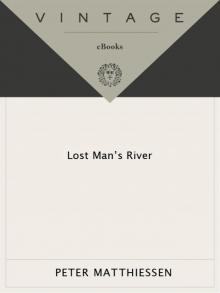 Lost Man's River: Shadow Country Trilogy
Lost Man's River: Shadow Country Trilogy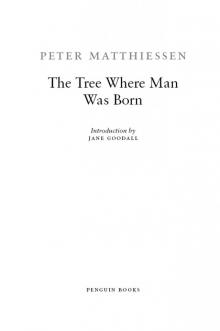 The Tree Where Man Was Born
The Tree Where Man Was Born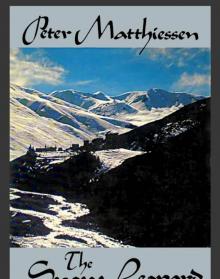 The Snow leopard
The Snow leopard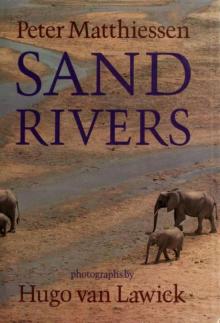 Sand Rivers
Sand Rivers The Cloud Forest
The Cloud Forest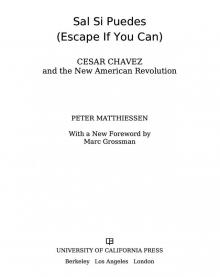 Sal Si Puedes (Escape if You Can)
Sal Si Puedes (Escape if You Can)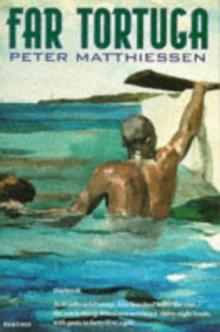 Far Tortuga
Far Tortuga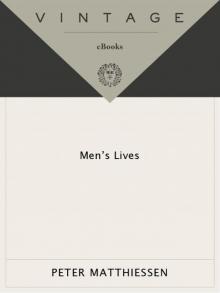 Men's Lives
Men's Lives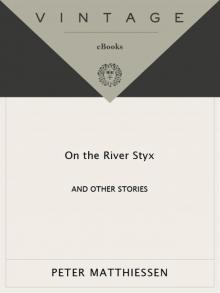 On the River Styx: And Other Stories
On the River Styx: And Other Stories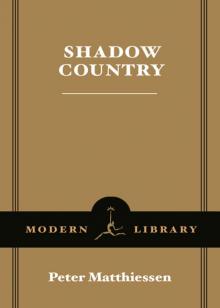 Shadow Country
Shadow Country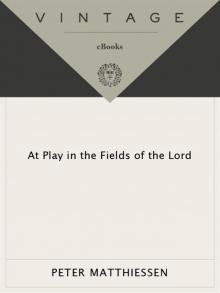 At Play in the Fields of the Lord
At Play in the Fields of the Lord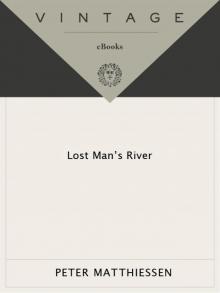 Lost Man's River
Lost Man's River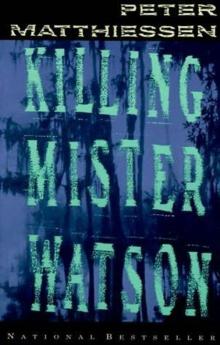 Killing Mister Watson
Killing Mister Watson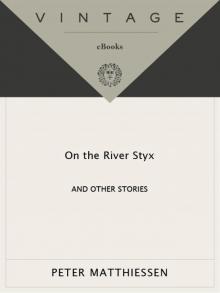 On the River Styx
On the River Styx